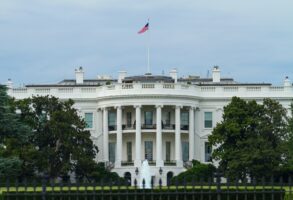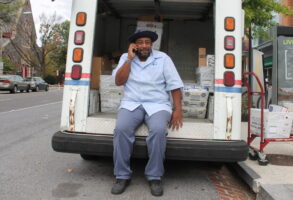
Published March 18, 2022
On March 18, 2022, EPPC Fellow Rachel N. Morrison filed an amicus brief in the U.S. Supreme Court case Dr. A. v. Hochul, supporting the petition that the Court hear the medical professionals’ challenge to the lack of religious exemptions in New York’s vaccine mandate for health care workers.
This is the third amicus brief filed by EPPC in this case. The first brief was filed in November 2021 in support of an emergency appeal to the Supreme Court, which was denied. The second brief was filed in December 2021 in support of a request asking the Second Circuit Court of Appeals to reconsider its decision upholding New York’s vaccine mandate. That request was also denied.
Similar to the other two amicus briefs, this brief explains Title VII’s religious accommodation standard and why New York’s mandate conflicts with Title VII. It was filed on behalf of Title VII religious accommodation experts Sharon Fast Gustafson, former General Counsel of the Equal Employment Opportunity Commission (EEOC), and EPPC’s Rachel Morrison, also a former EEOC employee. A summary of their argument is below.
This case raises the issue of whether New York can mandate that employers violate Title VII of the Civil Rights Act of 1964.
New York’s vaccine mandate allows “any reasonable accommodation” for medically exempt unvaccinated employees. N.Y. Comp. Codes R. & Regs. tit. 10, § 2.61(d) (2021). However, the mandate makes no allowance for religious exemptions and allows no reasonable accommodation for employees unvaccinated for religious reasons.
Under Title VII, when a workplace rule violates an employee’s sincerely held religious belief, an employer must reasonably accommodate the employee’s religious belief if it can do so without undue hardship to the employer’s business.
The Equal Employment Opportunity Commission (EEOC)—the federal agency tasked with enforcing Title VII—has set out what is required of a religious accommodation in order for it to be deemed “reasonable.” An accommodation is deemed not reasonable if it transfers an employee from his current position or if it reduces an employee’s pay, benefits, or responsibilities of employment, and a reasonable accommodation exists that would not so harm the employee.
Pursuant to Title VII and the Supremacy Clause of the U.S. Constitution, no state can require employers to violate Title VII’s reasonable accommodation requirement. Yet purportedly under New York’s mandate, employers must require employees to be vaccinated against COVID-19, without regard to, or accommodation for, an employee’s sincerely held religious beliefs.
Without intervention by this Court, New York’s mandate will effectively nullify the vital religious protections guaranteed to Petitioners by Title VII. The Court should grant the petition.
Rachel N. Morrison is a Fellow at the Ethics and Public Policy Center, where she directs EPPC’s HHS Accountability Project. An attorney, her legal and policy work focuses on religious liberty, health care rights of conscience, the right to life, nondiscrimination, and civil rights.









